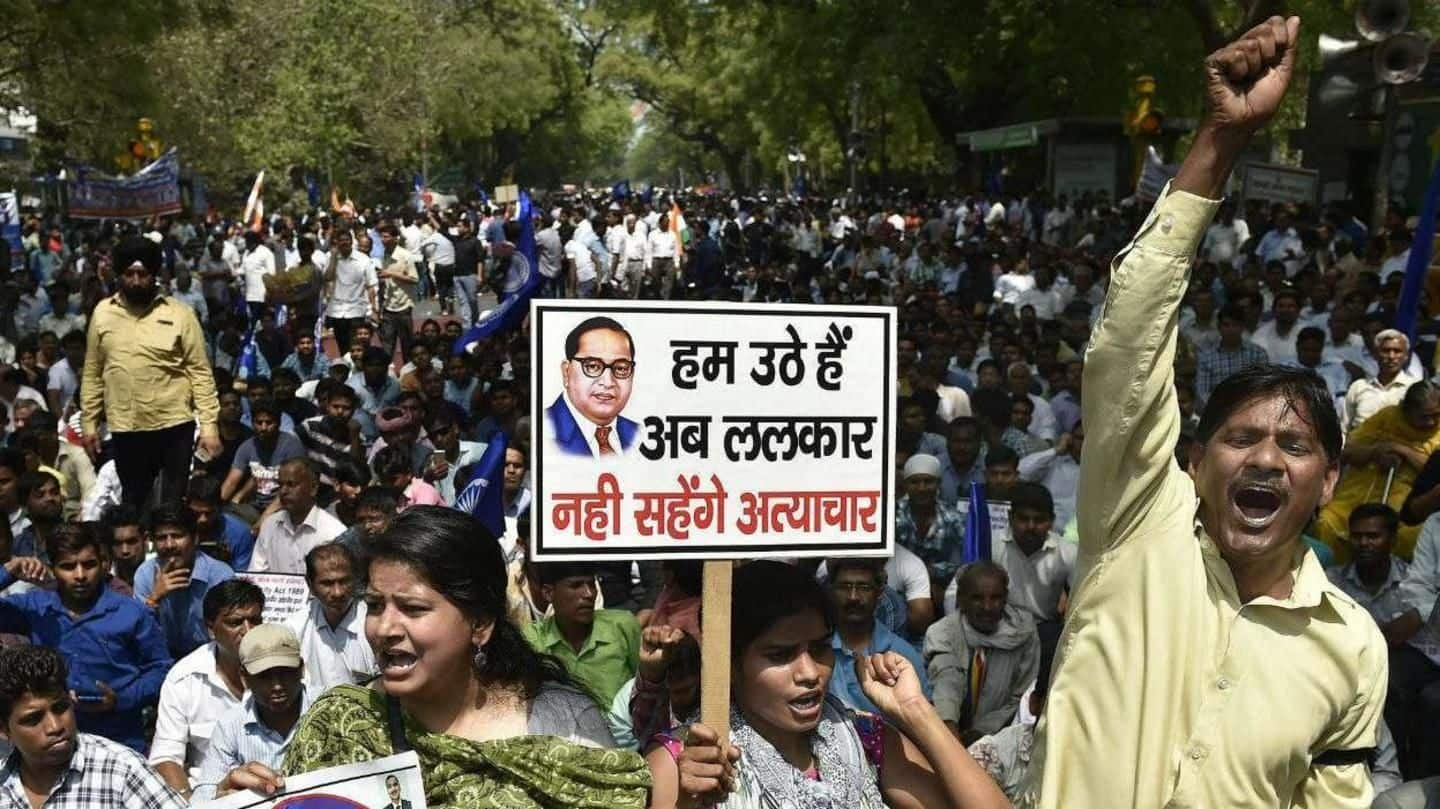
Cabinet reverses SC order, takes SC/ST Act to original form
What's the story
Right before the 2019 elections and a week ahead of planned Dalit protests, the Union Cabinet has introduced a bill in parliament restoring the original provisions of the SC/ST Act. "The government has undone the wrong done by the Supreme Court (SC)," a source told TIE. The country had seen violent protests after the SC allegedly "diluted" clauses in the bill in March.
SC order
What was the order that created the controversy?
On March 20, the SC barred registration of cases and automatic arrest in alleged cases of harassment of SCs and STs under the SC/ST (Prevention of Atrocities Act) 1989. Arrest of government servants would need prior sanction, and private citizens can only be arrested after the inquiry. The purpose, it said, was to protect honest public servants from being blackmailed with false cases.
Reax
How did the public react?
Dalit groups, who alleged the "dilution" of the Act will increase caste-based violence, protested in different states. They clashed with the police, attacked buses and government property, and blockaded trains and roads in states like MP, UP, and Rajasthan. The intense agitation left eight dead, the Center says. They also called for a nationwide shutdown on this issue on April 2.
Petition
SC hearing review petition filed by the Centre
Subsequently, the government filed a review petition in the SC. It argued the order deprives Dalits/Adivasis of a dignified life as promised under the Constitution The court refused to stay its previous order, or to hear it urgently, adding there were vested interests involved. However, it said it will reconsider the matter. The hearing commenced in May.
Amendments
What do these amendments mean?
The Centre is under pressure. BJP ally LJP, several MPs and Dalit groups demanded the original rules, threatening a nationwide protest if it didn't happen by August 9. The amendments remove the need for an enquiry for registration of FIR. Arrests won't require approval either. Section 43 of the CrPC won't apply. Sources said they'll get the bill passed during the ongoing session itself.